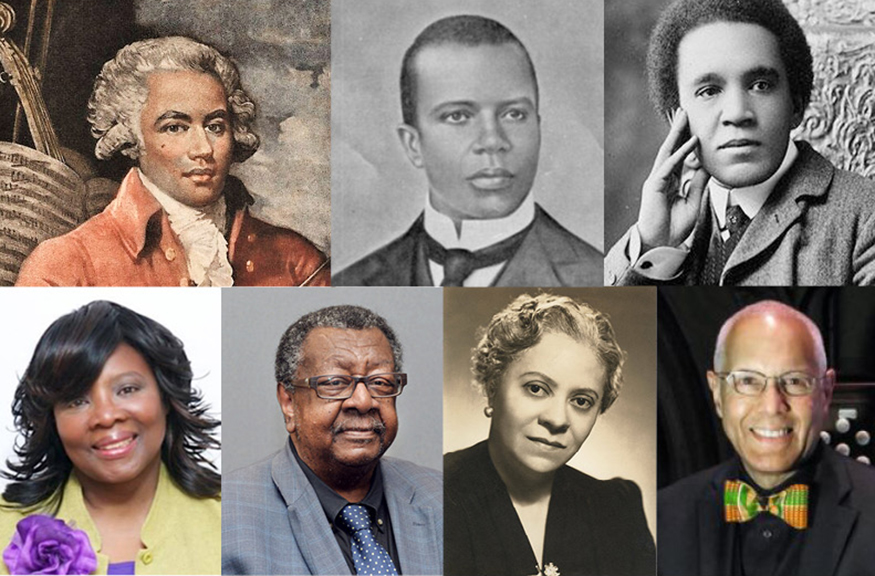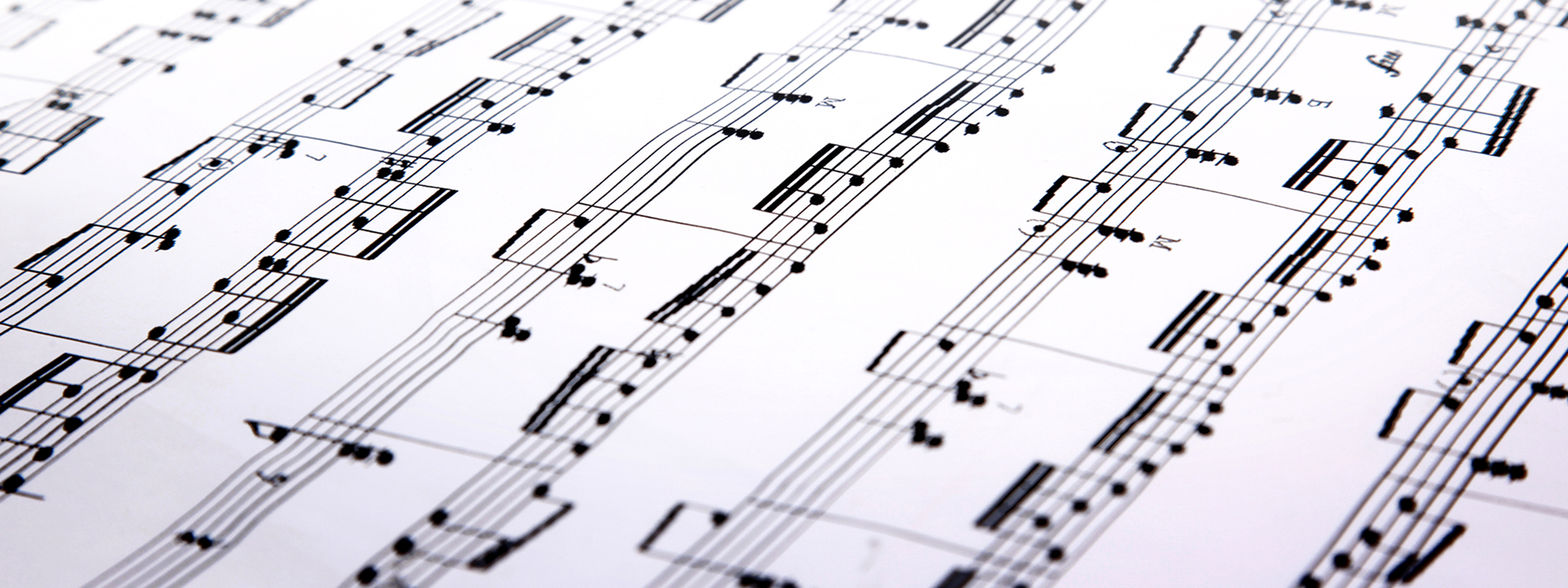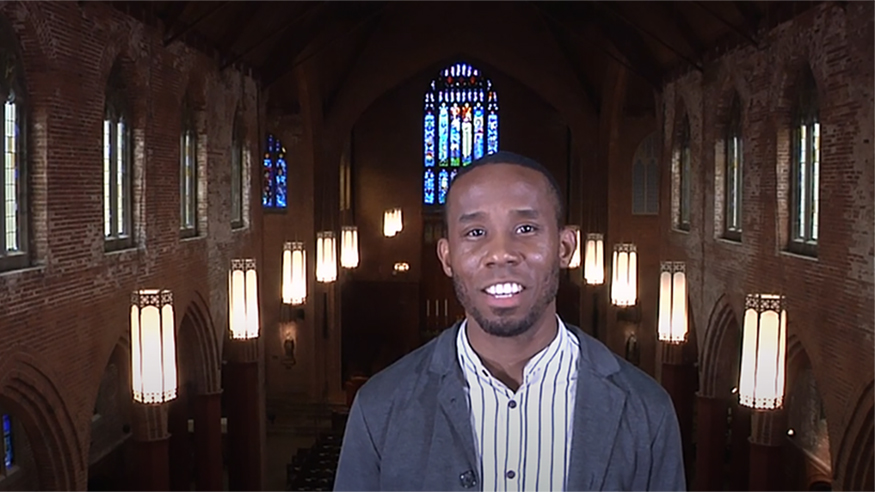The Black Composers Project, led by Professor Stephen Price (above), features performances of compositions by Black composers and historical information about their lives. View the hour-long video above.
Most people know Mozart and Beethoven, composers of the Classical music era. But what about Joseph Bologne, Chevalier de Saint-Georges, a Black composer living in Europe at the same time? Saint-Georges is one of seven composers (see sidebar) featured in the Black Composers Project, an hour-long video that pairs historical information about Black composers with performances of their works that feature the organ.
Stephen Price, head of organ studies in the UW School of Music and Paul B. Fritts Faculty Fellow, created and led the Black Composers Project. Here he answers a few questions about the project.
What inspired the Black Composers Project?
The American Guild of Organists (AGO) was on the hunt for Black-history-oriented material to share with its 15,000 members nationwide and in other countries. They asked if I would be interested in developing something. As one of very few African American classical organists, I welcomed the opportunity to share music from the African diaspora within the classical organ world, which is something that's only recently begun to be explored.
The video features composers from the 18th century through the present day. How did you decide who to highlight?
I wanted to go back as far as possible, and the first person that came to mind was Joseph Bologne, Chevalier de Saint George, who lived in the late 1700s. I also knew I wanted to include a composer who was familiar to everybody. I decided on Scott Joplin. He didn't write for the organ, but I thought presenting our own arrangement with flute and organ would be interesting. In selecting the rest of the pieces, there are several anthologies of organ music by African American composers; I wanted to feature works that had not already been recorded and published in those anthologies.

The music is performed on organs in UW’s Kane Hall and five churches across Seattle. Why perform on so many different organs?
If a student is learning a piece by Bach, an instrument built in the style of Bach in a church in Ballard would be best. For a piece by a late-19th-century French Romantic composer, there's a French Romantic instrument built in the 19th-century aesthetic in downtown Seattle. The UW’s organ was built in the Baroque style; it’s great for playing Baroque music but not ideal for music from later periods. So after deciding on the pieces for this project, I asked myself, “Which organ do I want to feature for each piece?”
I should add that the School of Music has rental contracts with all of these churches because our organ students use their instruments for lessons. I teach at those instruments on a weekly basis. I saw this project as an opportunity to showcase the uniqueness of the organ program and the many organs we have access to.
School of Music students and alumni perform along with you in the video, on flute, violin, and voice. Others perform organ solos. Why include students?
I always knew I wanted to showcase the School of Music beyond the organ program. I didn't want to be the only one playing. And I felt that it was important for students as performers to share a little bit about their journey in learning the piece and their thoughts about the piece. That strengthens the connection for the audience when they're listening.
Anne Searcy, associate professor of music history, provides biographical information and historical context for each composer. Why did you feel that was important?
This project was not just to feature Black composers, but also to showcase how their lives intersected with the evolution of music history. Annie was able to talk about the intersectionality of history and music and how social constructs impact how music has evolved.
This project was not just to feature Black composers, but also to showcase how their lives intersected with the evolution of music history.
What biographical information surprised you the most?
Scott Joplin being a successful businessman and how important that was to his success. He made sure his music was printed, distributed, and sold. At a time when people had pianos in their homes and played [sheet music] for entertainment, having his name on the music helped his music survive and helped make him popular.
As an African American musician, what has this project meant for you personally?
I think about these composers’ struggles and how they did not let that stop them. It's such an honor to carry their stories forward. And I hope that learning about these Black composers and how they have intersected in the wider umbrella of music evolution will spark people's interest in exploring other Black composers.
Any plans for a second video featuring other Black composers?
I wasn’t planning on it, but you're the fourth person that has asked that question, so maybe that's the universe telling me that there should be another video.
More Stories

Bringing Music to Life Through Audio Engineering
UW School of Music alum Andrea Roberts, an audio engineer, has worked with recording artists in a wide range of genres — including Beyoncé.

A Healing Heart Returns
In February, the UW Symphony will perform a symphony that Coast Salish elder Vi Hilbert commissioned years ago to heal the world after the heartbreak of 9/11. The symphony was first performed by the Seattle Symphony in 2006.

Need a break from holiday movies? Try these
For those wanting a break from holiday movies, Cinema & Media Studies faculty and grad students offer suggestions.

